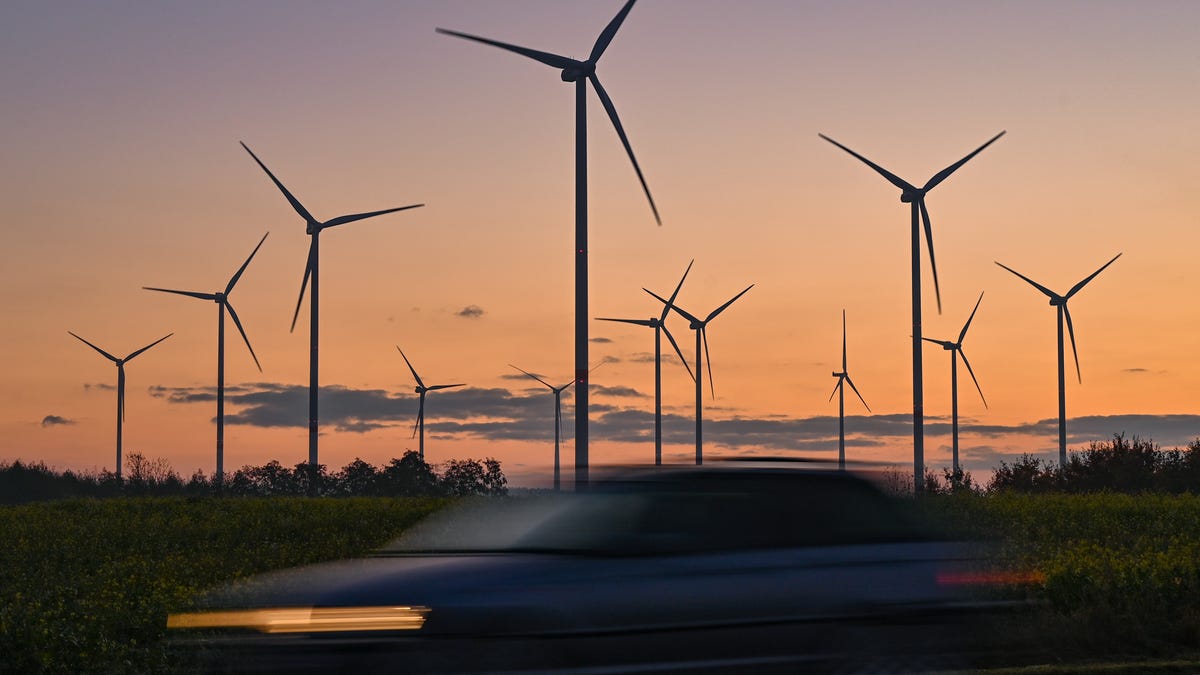Low-Carbon Energy Investments Matched Fossil Fuels in 2022, Report Says
Investment in the energy transition hit $1.1 trillion in 2022, matching the investment in fossil fuels for the first time, according to research group BloombergNEF.

The renewable energy sector includes sources such as wind.
Investment in low-carbon energy is booming, according to a report published by research group BloombergNEF on Thursday. The global expenditure in shifting away from carbon-emitting energy sources, and toward environmentally friendly alternatives, soared to $1.1 trillion in 2022, it said.
For the first time, the report concluded, investments in cleaner energy are level with those in fossil fuels, the burning of which is a major driver of climate change. It said that renewable energy, energy storage, electrified transport, electrified heat, carbon capture and storage, hydrogen and sustainable materials all reached record levels of financing in 2022.
The renewable energy sector comprises wind, solar, biofuels and other technologies. In 2022, the report said, the renewable energy sector amassed $495 billion in investments, up 17% from 2021.
The future of clean energy looks to be promising, according to the report, but more investment is necessary for the world to reach what's known as net zero -- the international goal of curbing CO2 emissions by 2050 in order to limit the global temperature increase to 1.5 degrees Celsius. A temperature rise greater than that would significantly increase the damage from climate change through drought, famine, decimation of wildlife and habitats, and widespread poverty.
BNEF says the investment in lower-carbon technologies falls "woefully short" of confronting climate change. Global investments must reach $4.55 trillion by 2030in order to stay in line with BNEF's net zero scenario, the report noted.
"Investment in clean energy technologies is on the brink of overtaking fossil fuel investments, and won't look back," Albert Cheung, head of global analysis at BNEF, said in the report. "These investments will drive short-term job creation and help to address medium-term energy security objectives. But much more investment is needed to get on track for net zero in the long term."
BNEF has been producing reports and data on the future of energy for over 10 years, including watching trends like how clean energy will impact the economy at large, according to its website.

